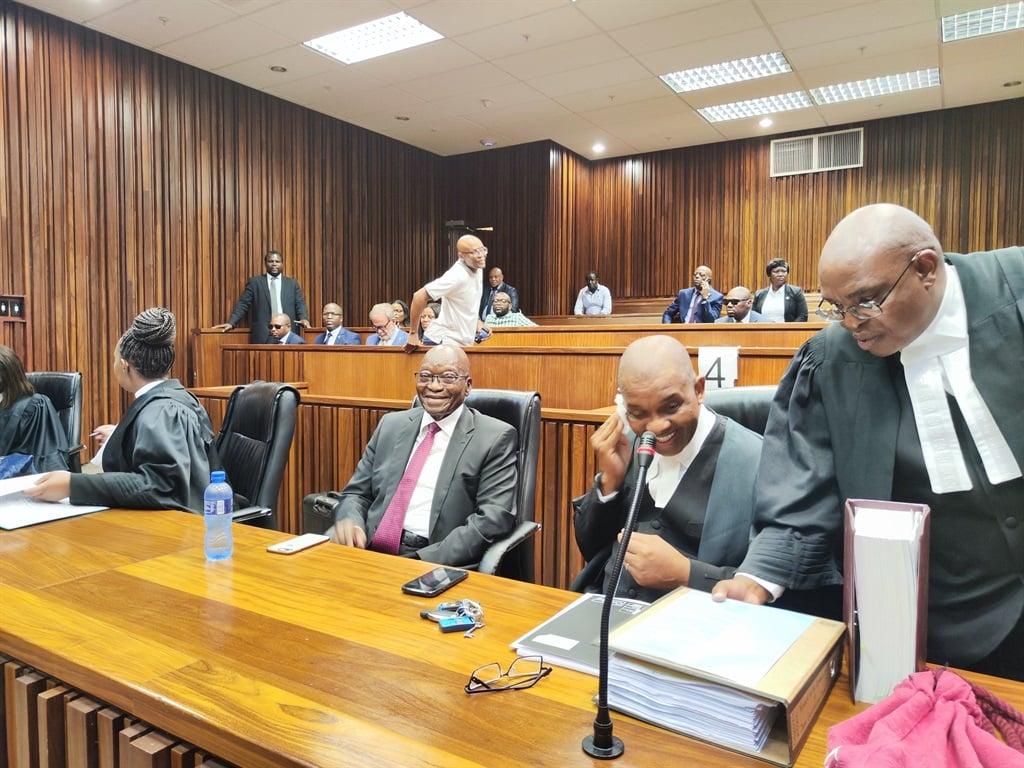Africa-Press – South-Africa. Former president Jacob Zuma had to be present in court on Thursday for the private prosecution he instituted against President Cyril Ramaphosa in order to avoid it being struck off the court roll or dismissed.
This was the submission Zuma’s lawyer, Dali Mpofu, SC, made before Judge Ismail Mohamed in the Gauteng High Court, where Zuma sought a date for the private prosecution.
On Monday, a full Bench of the High Court interdicted Zuma from proceeding with his case against Ramaphosa, pending the president’s application to have the private prosecution invalidated as an abuse of the legal process.
On Wednesday, High Court Judge Roland Sutherland set down Ramaphosa’s review application for 17 and 18 May.
Although Monday’s order meant Ramaphosa was not required to appear in court on Thursday for the private prosecution.
However, this was not the case for Zuma.
Mpofu argued that in terms of the Criminal Procedure Act, if the private prosecutor – in this case, Zuma – doesn’t physically appear on the day the matter is in court, the charges against the accused must be dismissed unless the court is presented with reasons for the private prosecutor’s failure to appear. If the failure was out of the private prosecutor’s control, the court can adjourn or postpone the proceedings to a later date.
He added:
Zuma could not take the “risk”, he submitted, of having the matter struck off the roll or dismissed because “we cannot bring it back.”
Mpofu also argued that they disagreed with Ramaphosa’s interpretation that Monday’s order exempted him from appearing in court on Thursday.
“We have a different interpretation, but that is not a matter that your lordship must worry about today,” he said.
The private prosecution case has been postponed to 26 May.
Appeal
Mpofu also told the court that Zuma had instructed his lawyers to appeal Monday’s order.
However, he added that they were still deciding whether to appeal directly to the Constitutional Court or whether to approach the Supreme Court of Appeal.
With the Part B of the application set to be heard on 17 and 18 May, it is not clear what Zuma will be appealing.
Spokesperson of the Jacob Zuma Foundation, Mzwanele Manyi, was at pains to explain to the media what Zuma intended to appeal.
“We are appealing the interdict. We are appealing the non-presence of the accused (Ramaphosa),” he said.
He added that the foundation would also issue a statement explaining what the appeal was based on.
“There are just too many things that the Bench misdirected itself on, and the lawyers will point all of those out,” Manyi said.
No case on court roll
Before the court proceedings kicked off, there was confusion over whether the matter would proceed because it was not on the court roll.
Chief registrar, Roanne Bramdaw, told journalists that there was no matter involving Zuma on the court roll due to Monday’s judgment.
But Mohamed said he was not told about the matter and only found out about it in the morning.
For More News And Analysis About South-Africa Follow Africa-Press






